The 8 most innovative scientists in tech and engineering
Abe Davis is finding new ways to use video by using the vibrations in it to reconstruct audio.

Bertolt Meyer dispels stereotypes and stigmas surrounding physical disabilities.
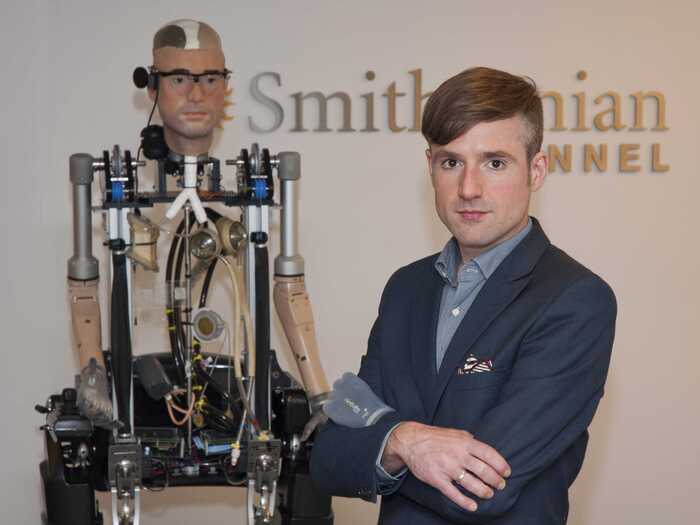
Bertolt Meyer is best known for hosting "The Incredible Bionic Man," a documentary about the state of modern bionics, a field in which engineers apply the designs seen in biology to create more responsive prosthetics, artificial organs, and more. A social psychologist, he uses his own condition to relate to others and hopes advances in bionics will help dispel stereotypes and stigmas around physical disabilities.
Meyer wears a bionic hand called an i-limb ultra revolution on his left arm. Though he used a series of different prosthetics growing up (he was born without the lower part of his left arm), he transitioned to the i-limb in 2009 because it was far easier to use, move, and interact with the environment around him.
Meyer is a professor at the University of Leipz
Hugh Herr develops smart limbs for amputees, including himself.
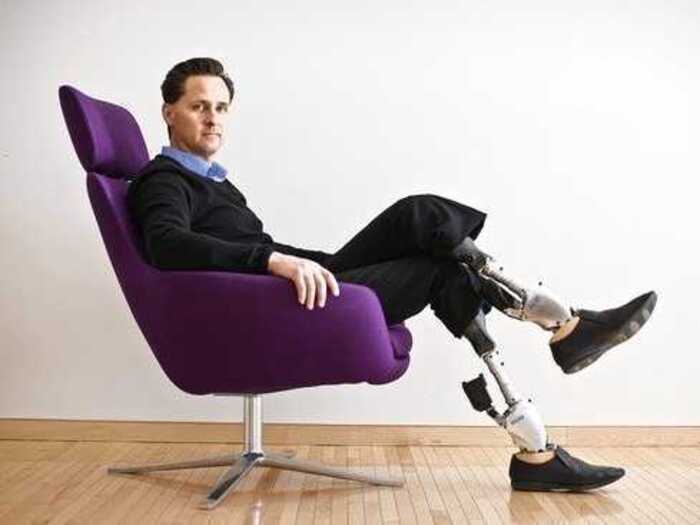
Hugh Herr develops bionic limbs for amputees, and with two bionic legs himself, it's an industry he's personally invested in. At MIT’s Media Lab, he creates new and better legs for amputees. The lab's biohybrid smart prostheses and exoskeletons integrate microcomputers that monitor things like joint pressure and gait, allowing the limbs to respond to the body the same way biological legs would. The prosthetics are available through BiOM Inc., which Herr founded.
Herr is an associate professor and leads the biometrics research group at MIT’s Media Lab.
John Donoghue is creating prosthetics that give back independence to people who lost it.
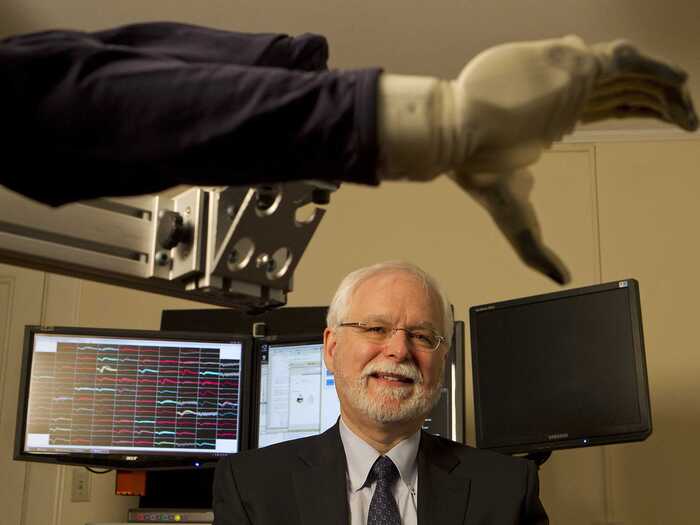
While engineers are hard at work designing prosthetics with more flexibility and dexterity than ever before, John Donoghue is figuring out how patients can control those prosthetics just by using their brains — the same way they would control a real arm or leg. Donoghue leads the BrainGate2 project, which is developing technologies to “restore communication, mobility, and independence of people with neurologic disease, injury, or limb loss.”
In 2015, Donoghue announced that he will be spending the next year leading the launch of a new research center in Switzerland focused on bio- and neuro-engineering.
Donoghue is the Henry Merritt Wriston Professor in the department of neuroscience at Brown University, director of the Brown Institute for Brain Science, and director of the Center of Excellence for Neurorestoration and Neurotechnology, Rehabilitation R&D Service, department of Veterans Affairs Medical Center, Providence, Rhode Island.
Manu Prakash is making low-cost, high-tech medical devices for countries that traditionally can't afford them.
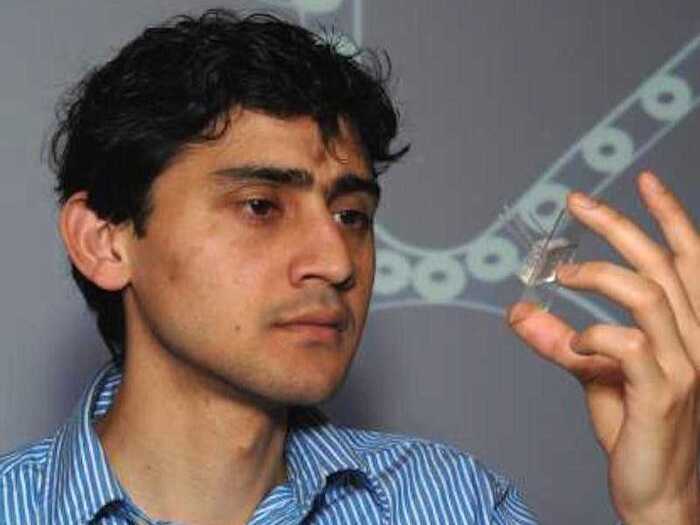
In the developing world, scientific instruments and medical diagnostics tools and treatments are coveted luxuries. Manu Prakash is out to change that with his innovative approach to what he calls “frugal science." Frugal science involves the design and manufacture of affordable scientific instruments to improve healthcare in developing countries.
One of his latest breakthroughs, which earned him a spot in Popular Science’s “The Brilliant Ten of 2014," was a pocket-sized paper microscope that could detect malaria in a single drop of blood. The best part? It costs 50 cents.
Prakash is an assistant professor of bioengineering at Stanford University.
Nat Turner and Zach Weinberg are developing software that will connect cancer patients to cures.
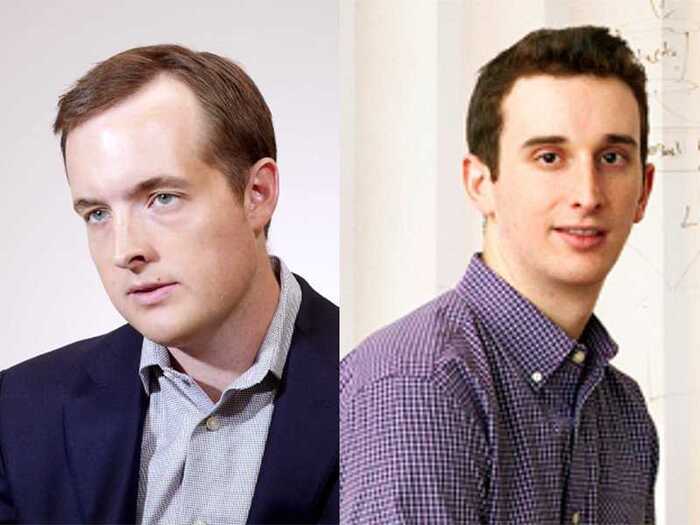
When your company gets the attention of a powerhouse like Google you’re doing something right. Nat Turner and Zach Weinberg, cofounders of Flatiron Health, a healthcare technology company based in New York City, have managed to accomplish this feat twice over. Flatiron Health aims to advance the fight against cancer by developing a "software platform that connects cancer centers across the country to help change the face of cancer."
Turner and Weinberg first caught Google's eye in 2010, when Google bought their tech company, Invite Media, for $80 million. Then in 2014, Google invested $100 million in the two men's healthcare tech company Flatiron Health. As of May 2015, Flatiron Health has acquired over $139 million in funding to help them achieve their lofty goal to cure cancer.
Turner and Weinberg are business entrepreneurs and founders of Flatiron Health and Invite Media.
Stewart Coulter is revolutionizing the world of prosthetics.
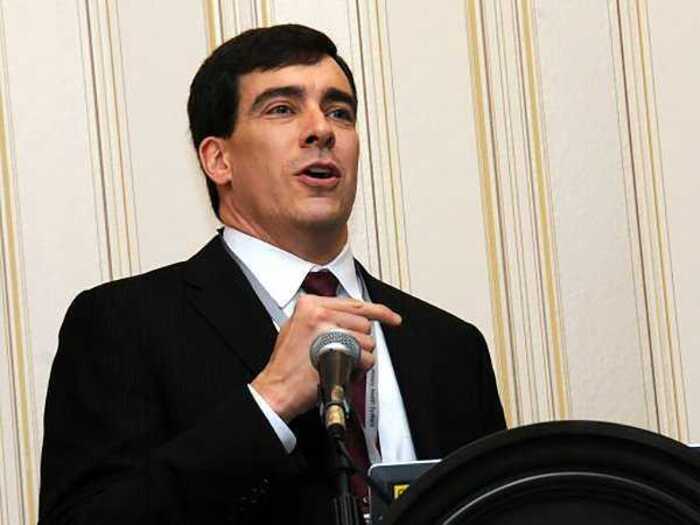
Project manager for the robotic “Luke” Arm at DEKA Research and Development, Stewart Coulter is helping empower people who have lost a limb.
Named for Star Wars character Luke Skywalker, who loses his arm in "The Empire Strikes Back," the "Luke" Arm is a robotic arm designed as a prosthetic that aims to help amputees complete day-to-day tasks never before thought possible. In 2014, DEKA announced that in a clinical trial, 90% of 36 participants with the arm could unlock a door and use chopsticks, which were tasks too complicated for former prosthetics.
Coulter is the engineering manager at DEKA Research & Development.
Popular Right Now
Popular Keywords
Advertisement